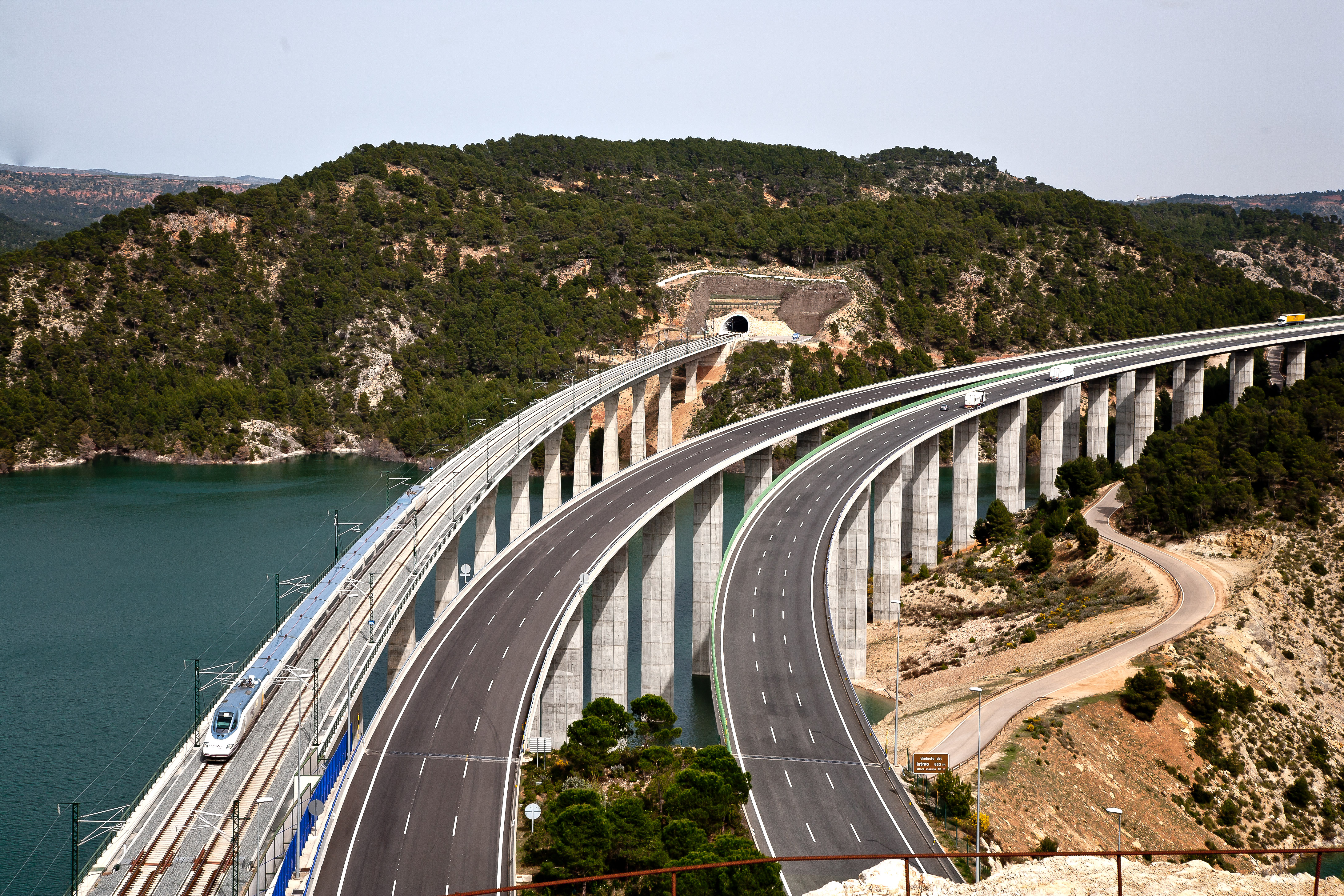# Ineco
Impulsa
Efficiency of the Spanish sector in the development of high-speed railways

The world's most efficient high speed
Spain has managed to develop the most extensive high-speed network in the EU with the lowest average construction cost. And it has done so with very high design and quality parameters, at the forefront of the sector, in relatively quick times and without major budget deviations.
Spanish high-speed rail has an averagec onstruction cost of 17.7 M€ per kilometre
over 45.5 M€ in the other countries.
Spain, the country with the best value
Unbeatable value for money
Spain is positioned as the country with the best value for money. Those that achieve higher scores on the quality index do so at the cost of substantial increases in their cost per kilometre of high-speed rail.
The country has developed the second highest high-speed network in the world with one of the lowest construction costs per kilometre: Spain builds high-speed trains at an average cost per kilometre of 17.7 million euros, compared to 45.5 million euros in other high-speed countries, more than twice as much.


Elements contributing to the efficiency of the model
Social and political consensus is a fundamental factor in the success of the Spanish model compared to that of other countries. A commitment that, together with the highly qualified talent residing in the public sector and the involvement of Adif, the support of Ineco and the Public Administration as a whole, has facilitated a high level of investment and a clear commitment to the railway as a key element for sustainability and the energy transition of mobility. The private sector has been able to build on this momentum.
Spanish construction companies, manufacturers and engineering firms have been able to develop and strengthen their know-how, specialisation, technology, innovation and, fundamentally, contribute value throughout the infrastructure life cycle.
Efficiency of Spanish high-speed rail
Full list of contributors











